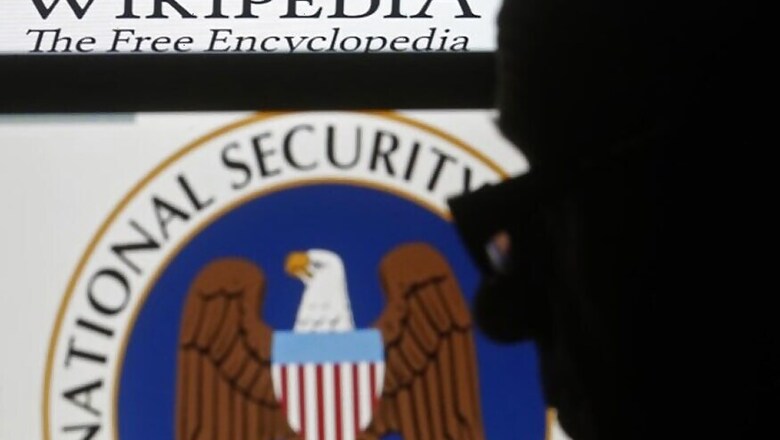
views
A federal appeals court on Tuesday revived part of a lawsuit in which the publisher of Wikipedia and other groups said mass online surveillance by the U.S. National Security Agency violated the U.S. Constitution.
By a 3-0 vote, the 4th U.S. Circuit Court of Appeals in Richmond, Virginia, said the Wikimedia Foundation could pursue claims challenging the so-called Upstream surveillance, involving the bulk searching of Internet communications.
The appeals court said a lower court judge erred in dismissing that claim because the main allegations were "not speculative," giving the group standing to sue for violations of the U.S. Constitution's First and Fourth Amendments.
"The allegation that the NSA is intercepting and copying communications suffices to show an invasion of a legally protected interest," Circuit Judge Albert Diaz wrote. "Indeed, there's nothing speculative about it."
Tuesday's decision also upheld the dismissal of related claims by eight other groups, including Amnesty International USA and Human Rights Watch, saying they could not plausibly show the NSA was intercepting their communications through what it called a "dragnet."
Circuit Judge Andre Davis dissented from that part of the decision, saying he would have found the other plaintiffs had standing.
A lawyer for the American Civil Liberties Union who argued the appeal for the plaintiffs and the U.S. Department of Justice did not immediately respond to requests for comment.




















Comments
0 comment